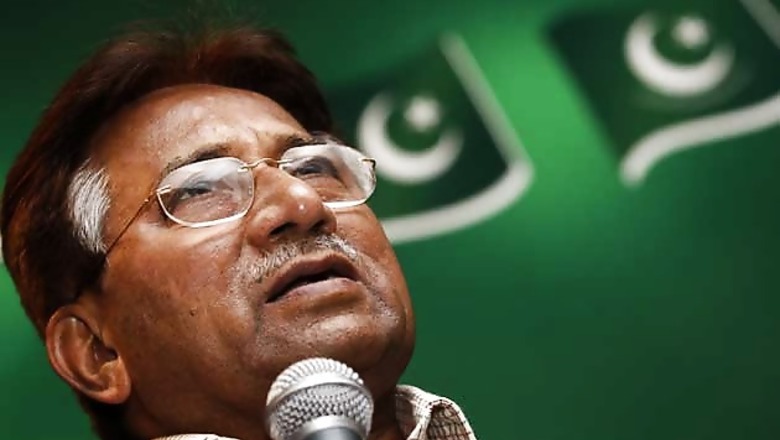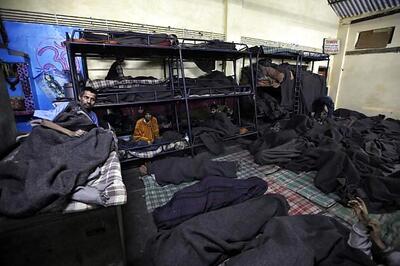
views
Islamabad: Former Pakistan President Pervez Musharraf on Monday said there would be no peace in the region without the resolution of outstanding issues with India, including the disputes over Kashmir, Siachen and Sir Creek. Listing Pakistan's internal stability and regional peace as two key elements of the foreign policy of his All Pakistan Muslim League party, Musharraf said, "Peace will come if disputes with India are resolved, including the Kashmir dispute".
"No peace is possible unless the Kashmir dispute is resolved along with the Siachen and Sir Creek issues," he said at the launch of his party's manifesto for the May 11 general elections. Pakistan's standing in the world community and its role in the emancipation of Muslims around the globe are the two other important elements of the APML's four-pronged foreign policy, said Musharraf.
He referred to Pakistan's geo-strategic location and underlined Islamabad's importance in all regional economic and trade initiatives. "Whether it is the Central Asian states, Afghanistan or India, no trade (initiative) will be possible unless Pakistan allows it. We have to improve connectivity with Afghanistan, China, Iran and India," he said, at the event held amidst tight security at his sprawling farmhouse at Chak Shahzad on the outskirts of Islamabad.
Musharraf, 69, returned to Pakistan in March after nearly four years in self-exile to lead his party in the polls. However, he has been facing numerous political and legal challenges since his homecoming, including cases registered against him for the 2007 assassination of former premier Benazir Bhutto and the 2006 killing of Baloch leader Akbar Bugti in a military operation.
Responding to a flurry of questions about cases filed against him over the steps he had taken after imposing emergency rule in 2007, Musharraf insisted he had acted in the best interest of Pakistan. However, he said he was ready to go to jail if the courts ordered it.
"I have a conviction that I haven't done anything wrong. I took all these decisions for Pakistan," he said. He refused to comment on a case in the Supreme Court seeking his trial for treason for subverting the Constitution, saying the matter was sub-judice. Asked what he would do if he lost the cases and was sentenced to prison, Musharraf said, "If that is the decision, I am ready to go".
He further said he had had no meetings or contacts with army chief Gen Ashfaq Parvez Kayani since his return to Pakistan. But he referred to the security provided to him by the army and said this was an indication that he had "some acceptability".
Responding to a question about the situation in Afghanistan, he said there would either be "turmoil or a stalemate" after the withdrawal of US and foreign forces from the neighbouring country in 2014. At the same time, there is a "foreign hand trying to create an anti-Pakistan Afghanistan", he claimed.
"We want to see a friendly Afghanistan and we have to plan for the post-2014 scenario," he said. The former military ruler said he had not struck a secret deal with the PML-N party for his homecoming.
"There is no agreement, there is nothing in the background. I used to confront (PML-N chief Nawaz Sharif) at one time and we would say things against each other. But I decided this is not good politics," said Musharraf, who came to power by deposing the government led by Sharif in a military coup in 1999.



















Comments
0 comment